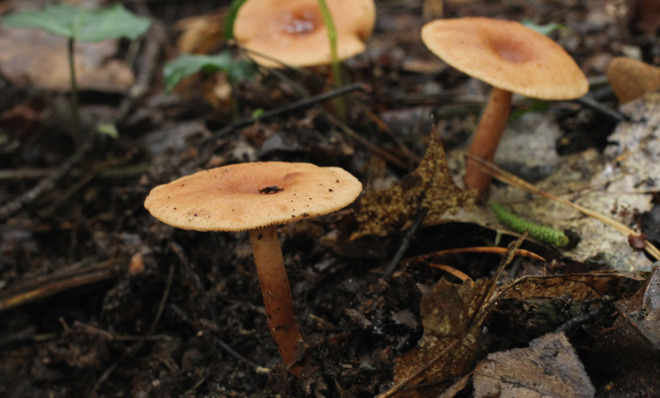Our newest weapon against climate change: Little mushrooms
A new study shows that certain fungi help slow the release of carbon into the atmosphere. This could be huge.

A free daily email with the biggest news stories of the day – and the best features from TheWeek.com
You are now subscribed
Your newsletter sign-up was successful
New technologies like solar panels are likely our best bet if we hope to reduce greenhouse gases like carbon dioxide. But future generations may have just gained an unlikely, totally organic ally in the fight against climate change: Fungi.
A new study published in Nature found that common ectomycorrhizal (EEM) fungi — which can produce edible mushrooms — may help dramatically reduce the amount of carbon released into the atmosphere by decaying matter. Researchers from the University of Texas, Boston University, and the Smithsonian Tropical Research Institute discovered that EEM fungi help lock carbon into the soil. Bryan Walsh at TIME has an excellent explanation of the process:
Plants sequester carbon dioxide, but when they die, that carbon enters the soil — a lot of it. Globally, soil is the biggest single terrestrial reservoir of carbon, far more than the amount of carbon contained in living things and in the atmosphere combined. (On a planetary scale, the oceans hold by far the most carbon.) As the dead plant matter is broken down by microbes in the soil, that carbon is released back into the air. The rate at which that carbon leaves the soil can obviously have a major impact on the amount of carbon in the atmosphere, which in turn helps drive climate change. [TIME]
That's where mycorrhizal fungi come in. The microbes that break down plant matter need nitrogen found in the soil in to function. EEM fungi, which typically attach themselves to the roots of plants, compete with these microorganisms for nitrogen and steal it away.
The Week
Escape your echo chamber. Get the facts behind the news, plus analysis from multiple perspectives.

Sign up for The Week's Free Newsletters
From our morning news briefing to a weekly Good News Newsletter, get the best of The Week delivered directly to your inbox.
From our morning news briefing to a weekly Good News Newsletter, get the best of The Week delivered directly to your inbox.
At the same time, the fungi also convert nitrogen into nutrients for the living plants they've attached themselves to. (Plants are important since they produce, you know, oxygen.) EEM fungi essentially protect plants, slowing the process of carbon decay and release considerably.
In fact, soil samples collected by researchers showed that the fungi were able to alter how much carbon was released into the air by a staggering 70 percent.
That's a significant figure, and one that could theoretically move the needle in existing climate change models. Not bad for something we tend to think of as a pizza topping.
A free daily email with the biggest news stories of the day – and the best features from TheWeek.com
-
 Currencies: Why Trump wants a weak dollar
Currencies: Why Trump wants a weak dollarFeature The dollar has fallen 12% since Trump took office
-
 Book reviews: ‘Hated by All the Right People: Tucker Carlson and the Unraveling of the Conservative Mind’ and ‘Football’
Book reviews: ‘Hated by All the Right People: Tucker Carlson and the Unraveling of the Conservative Mind’ and ‘Football’Feature A right-wing pundit’s transformations and a closer look at one of America’s favorite sports
-
 Judge blocks Trump suit for Michigan voter rolls
Judge blocks Trump suit for Michigan voter rollsSpeed Read A Trump-appointed federal judge rejected the administration’s demand for voters’ personal data